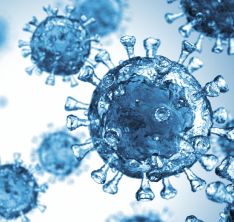The Netherlands has stopped administering the Oxford/AstraZeneca coronavirus vaccine to people under 60 following the death of a woman who had received one of the jabs, according to national news agency ANP.
Some 10,000 scheduled appointments for vaccinations will be scrapped as a result of the decision, the report said, citing the country’s health ministry as a source.
It comes days after the European Medicines Agency’s executive director said there was “no evidence” to support restricting the use of the medicine “in any population”.
Emer Cooke had defended the vaccine after several European countries suspended rolling it out due to fears of blood clotting.
The agency said a causal link between blood clots and the vaccine was not proven, but that it might be possible and further analysis was being done.
Read more:
“Our position has not changed,” Ms Cooke said at a press briefing on Wednesday. “According to the current scientific knowledge, there is no evidence that would support restricting the use of this vaccine in any population.”
Earlier this week, Germany became the EU’s latest member to restrict the jab’s use, also suspending it for under-60s. Angela Merkel told reporters that the change was prompted by the occurrence of what she called very rare but very serious cases of thrombosis among younger and predominantly female recipients of the vaccine.
“We cannot ignore those cases,” Ms Merkel said, adding that the EMA and World Health Organisation were notified of the incidents.
Further cases of clotting were also discovered among recipients of the AstraZeneca jab in the UK, according to the latest data from the Medicines and Healthcare products Regulatory Agency (MHRA), published on Thursday, though experts made clear incidents remained low.
MHRA runs a “yellow card” scheme in which anyone can report side-effects or other concerns for medicines and medical devices, on either an online form or through a mobile phone app.
The latest MHRA figures show there have been 22 reports of a blood clot in the brain, called cerebral venous sinus thrombosis (CVST), which was accompanied by a low platelet count among recipients of the AstraZeneca jab.
There were also eight reports of other blood clotting problems with low platelets.
But such cases remain low, the MHRA stressed. By the end of March, more than 18 million doses of the AstraZeneca vaccine had been administered in the UK – both first and second doses.
Meanwhile, pharmaceutical giant AstraZeneca said on Friday that the World Health Organisation, as well as regulatory authorities in the UK and EU, had concluded that that the benefits of using its jab “significantly outweigh risks across all adult groups”.
Europe is currently in the midst of a third wave of the pandemic, with countries seeing huge surges of cases. On Wednesday, Emmanuel Macron announced France was going into its third national lockdown due to an uptick of infections and hospitalisations.
The country reported 50,659 new coronavirus cases on Thursday, against 59,038 on Wednesday and 45,641 reported on Thursday a week ago, health ministry data showed.
A total of 5,109 people were in intensive care units with Covid-19, up by 56 from a day earlier.
The Independent has been in touch with the Netherlands’ Ministry of Health, Welfare and Sport and is due to receive a comment on this matter soon.










